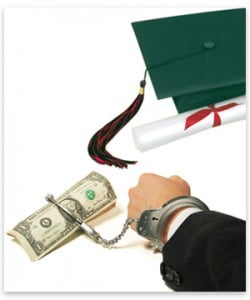
- You are unable to maintain a minimum standard of living for yourself and any dependents if you are forced to repay student loans. For example, if you would not be able to pay your mortgage, maintain critical medical treatments or buy food if forced to repay student loans.
- You are also not likely to experience an improvement in your financial situation in the future. This is especially difficult to prove for most debtors who may still be in their prime earning years. However, if a debtor has a disability that keeps them from working, then that factor may qualify has preventing them from improving their financial situation.
- You have made a good faith effort to repay your student loans over time. It is not just paying on your loans that is considered; but your willingness to improve your earnings by going back to school, looking for better paying work etc.
A debtor who meets the above three criteria may be able to discharge their student loans in Chapter 7 bankruptcy; however, it can be difficult to prove that a debtor meets all three criteria. Unfortunately, different bankruptcy judges may interpret an individual debtor’s circumstances differently. For example, there have been cases where a serious disability did not qualify a debtor to receive bankruptcy discharge of their student loans.